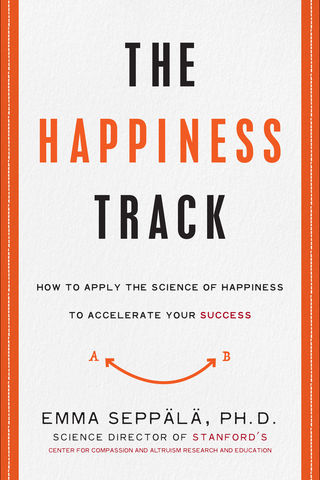Relationships
3 Powerful Science-Based Benefits of a Little Self-Love
How Self-Love Outperforms Beating Yourself Up
Posted November 27, 2012
Are you highly self-critical? Do you beat yourself up over failures? Do you work too much and push too hard without giving yourself time to breathe? Do you feel the need to compete, outperform others, and move ahead of the pack? Do you live with shame or a sense of not being good enough? We live in a society that regularly sends us the message to achieve more, work harder, win, be perfect, be the best. There is of course nothing wrong with having goals and dreams to pursue. However, most of us don't stop to consider whether our self-critical and competitive attitude is actually helping us achieve these goals or whether it might actually be standing in our way. New research suggests self-compassion may be a far superior alternative.
Self-Criticism: A Self-Defeating Tendency
Kristin Neff, associate professor of Human Development and Culture at the University of Texas and pioneer of research on self-compassion, has shown that when our self-worth depends on out-competing others, we actually become more insecure and anxious: if we fail, we become highly self-critical, adding to our misery. Faced with criticism, we become defensive and feel crushed. We give up in the face of challenge. Moreover, competition fosters disconnection: rather than building social connection which research shows is essential to well-being, we view others as obstacles to overcome and we ultimately feel more separate from others. The primary goal of our desire for success is to be successful, to belong, and to be loved yet ironically self-criticism and competition end up having the reverse effect.
Self-Compassion: A Healthy Alternative that Reaps Results
Where self-criticism leaves us powerless and distraught, self-compassion is at the root of empowerment, learning, and inner strength. With self-compassion, we value yourself not because we’ve judged ourselves positively and others negatively but because we are intrinsically deserving of care and concern just like everyone else. Self-compassion means treating ourselves as we would a friend. Rather than berating, judging, or adding to a friend's despair, we listen with empathy and understanding, encourage them to remember that mistakes are normal, and validate their emotions without adding fuel to the fire. Neff defines self-compassion as “being kind and understanding toward oneself in instances of pain or failure rather than being harshly self-critical; perceiving one’s experiences as part of the larger human experience rather than seeing them as isolating; and holding painful thoughts and feelings in mindful awareness rather than over-identifying with them.” (See Dr. Kristin Neff's wonderful book on Self-Compassion).
Self-critical over-achievers are not the only ones that lack self-compassion. Some of the kindest people do as well. Neff’s work confirms this observation: There is no correlation between the trait of self-compassion and feelings of compassion towards others. Many people, women in particular, are far more compassionate and kinder towards others than to themselves. Fortunately, self-compassion can be learned. It is a practice that can help us all become less self-critical and, by preventing the stress and turmoil thereof, allow us to be happier, more successful, and of greater service to others.
1. Self Compassion Leads to Increased Strength
Self-compassion does not mean we stop working hard and aiming for success. Instead, it is a change in attitude and is linked with greater well-being as well as superior performance outcomes. Nor does self-compassion imply self-indulgence. For example, a parent who cares about her child will insist on the child eating vegetables and doing her homework, no matter how unpleasant these experiences are for the child. Similarly, taking it easy on yourself may be appropriate in some situations, but in times of over-indulgence and laziness, self-compassion involves toughening up and taking responsibility.
2. Self Compassion Leads to Increased Productivity
When you are motivated by self-compassion, you understand failure not as a painful indicator of defeat but as a learning opportunity from which growth can follow. Whereas self-criticism leads to painful and self-defeating emotions in the face of failure, Self-Compassion therefore embraces challenge. People with higher self-compassion are therefore more likely to improve their performance after failure! Moreover, by preventing the defeating effects of self-criticism, self-compassion allows us to maintain peace of mind and thereby retain our energy. By remaining calm and understanding in the face of rejection, failure or criticism, we develop level-headedness, strength and emotional stability which allow us to have higher well-being and to be more productive and successful.
3. Self Compassion Leads to Decreased Stress
Though research into the physiology of self-compassion versus self criticism is still pending, Neff hypothesizes a simple model. Harsh self-criticism activates the sympathetic nervous system (“fight or flight”) and elevates stress hormones such as cortisol in our bloodstream. When this sting has a hold on us, we cannot learn from and engage with the kernel of truth that may be there to serve us. Also known as the “cuddle hormone,” oxytocin is released in lactating mothers, during hugging and sex, and is associated with feelings of well-being, trust, and loyalty.
Practices for Boosting Self-Compassion
1) Write Yourself a Letter: Take the perspective of a compassionate friend, so you can imagine that you are this other person. What would a compassionate and kind friend say to me right now? What would their words be? Later, come back and read the letter and receive it from yourself.
2) Write Down Your Self-Talk: If you are self-criticizing because your jeans don't fit or you said the wrong thing in a situation, write down the self-critical words that come to mind and then ask if would you ever say these words to a friend? What would a friend say?
3) Develop a Self-Compassion Mantra: Neff suggests developing something that is easily memorized so that when something difficult happens, you can go to your phrases. They are not positive affirmations but reminders. Here is the self-compassion she developed for herself "This is a moment of suffering, suffering is part of life, may I be kind to myself in this moment may I give myself the compassion that I need" Neff’s son has autism and when he would have a tantrum in public, she would immediately turn to her self-compassion mantra partly as a focus for her mind but also because what she needed most at that moment was emotional support for herself so she could deal with the situation calmly and with more grace.
4) Meditation: Meditation is a process by which, through contemplation and relaxation, we can begin to loosen the grip of self-critical thoughts and emotions. There are many forms of meditation practice from mantra meditations, to breathing practices, mindfulness to yoga or nature walks. Find a practice that works for you and allows you to create space and quiet in your mind.
For more on the science of happiness, health and social connection: www.emmaseppala.com. For additional techniques to increase self-compassion by Kristin Neff visit her Psychology Today blog or go to www.self-compassion.org. On the next page you will find a description by Kristin Neff of the 3 elements of Self-Compassion:
The Three Elements of Self-Compassion
Self-kindness. Self-compassion entails being warm and understanding toward ourselves when we suffer, fail, or feel inadequate, rather than ignoring our pain or flagellating ourselves with self-criticism. Self-compassionate people recognize that being imperfect, failing, and experiencing life difficulties is inevitable, so they tend to be gentle with themselves when confronted with painful experiences rather than getting angry when life falls short of set ideals. People cannot always be or get exactly what they want. When this reality is denied or fought against suffering increases in the form of stress, frustration and self-criticism. When this reality is accepted with sympathy and kindness, greater emotional equanimity is experienced.
Common humanity. Frustration at not having things exactly as we want is often accompanied by an irrational but pervasive sense of isolation – as if “I” were the only person suffering or making mistakes. All humans suffer, however. The very definition of being “human” means that one is mortal, vulnerable and imperfect. Therefore, self-compassion involves recognizing that suffering and personal inadequacy is part of the shared human experience - something that we all go through rather than being something that happens to “me” alone. It also means recognizing that personal thoughts, feelings and actions are impacted by “external” factors such as parenting history, culture, genetic and environmental conditions, as well as the behavior and expectations of others. Thich Nhat Hahn calls the intricate web of reciprocal cause and effect in which we are all imbedded “interbeing.” Recognizing our essential interbeing allows us to be less judgmental about our personal failings. After all, if we had full control over our behavior, how many people would consciously choose to have anger issues, addiction issues, debilitating social anxiety, eating disorders, and so on? Many aspects of ourselves and the circumstances of our lives are not of our choosing, but instead stem from innumerable factors (genetic and/or environmental) that we have little control over. By recognizing our essential interdependence, therefore, failings and life difficulties do not have to be taken so personally, but can be acknowledged with non-judgmental compassion and understanding.
Mindfulness. Self-compassion also requires taking a balanced approach to our negative emotions so that feelings are neither suppressed nor exaggerated. This equilibrated stance stems from the process of relating personal experiences to those of others who are also suffering, thus putting our own situation into a larger perspective. It also stems from the willingness to observe our negative thoughts and emotions with openness and clarity, so that they are held in mindful awareness. Mindfulness is a non-judgmental, receptive mind state in which one observes thoughts and feelings as they are, without trying to suppress or deny them. We cannot ignore our pain and feel compassion for it at the same time. At the same time, mindfulness requires that we not be “over-identified” with thoughts and feelings, so that we are caught up and swept away by negative reactivity.

For more on self-compassion and how it improves happiness, health and success, see The Happiness Track (HarperOne), now available in paperback.




